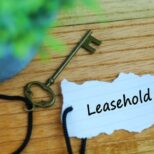
Making your commercial property portfolio more sustainable
14th October 2021 by Mark Preece
Growing evidence of climate change has put sustainability firmly on the commercial property agenda. Owners, occupiers, and lenders are increasingly focused on ‘ESG’ which refers to environmental, social and governance issues. Lenders and occupiers are asking to see green credentials and there is growing evidence that more sustainable buildings may command premium rents.
It can be tricky for commercial property owners to work out which changes will make the most impact, so it pays to get advice from a good commercial property lawyer.
‘Making a building sustainable means more than just reducing energy consumption,’ explains Mark Preece, head of the commercial property team with Laceys. ‘How the building is used during its lifetime is equally important, and that means you need to think about where energy and materials come from and make sure ESG issues are reflected in your leases and contracts as well.’
The fabric of your building
Commercial property owners must already produce Energy Performance Certificates (EPCs) and commercial landlords must ensure their buildings meet minimum energy efficiency standards (MEES) before they can lawfully be let. The Government intends to raise these standards over the next decade and property owners should take this into account when planning maintenance and improvement cycles. As well as making buildings more energy efficient, it is increasingly important to consider using materials that will meet sustainability criteria set out by lenders and by potential occupiers. Many tenants are looking particularly at air quality in the wake of the pandemic, so property owners may need to think about installing higher specification ventilation and air conditioning.
A key question here is who pays for sustainability? Although the running costs of a more efficient building should be lower in the long run, there will be capital investment at the outset. Tenants usually reject any attempt to recover costs like this through the service charge, but if businesses see sustainability as part of their brand image then it may be easier to negotiate a higher rent for a greener building. If your leases do not already reflect new expectations for how tenants will use the building, with requirements to work in partnership with the landlord on issues like energy use and alterations, your solicitor will be able to advise you on the necessary drafting.
Generating renewable energy
Using part of a site to produce renewable energy could be another win. The most obvious choice is to install solar panels, either on an existing building or on undeveloped land, as part of a solar farm. Again, the initial cost is a key issue. An owner could pay for and operate a solar generation system on their building, with full control of the energy and income generated. The alternative is to let space to a specialist operator, who will install and run the system. This is the most common approach with larger solar farms on vacant land but is quite often done for rooftop installations on buildings as well.
Unwary landowners could be caught out if they simply sign an operator’s standard agreement, so it is crucial to get a solicitor involved to make sure the agreement covers all the essential points and achieves the best outcome for the owner.
Renewable energy produced on the property may be attractive to tenants if the price is competitive. Please note that landowners cannot insist that tenants buy energy from them, because this would breach competition law.
Electric vehicle charging
Sustainable transport is as important as sustainable buildings. As well as encouraging occupiers to walk, cycle and use public transport, many landowners are thinking about electric vehicle (EV) charging points. As with solar panels, a property owner may pay to install charging points and take the income or let land to a specialist operator in return for a rent based on the income generated. Charging points for tenants’ employees do not need to charge as rapidly as those in a standalone charging station, so landowners need good advice to make sure they make the right choice for their property.
A landowner with a vacant site, perhaps next to an existing development or on a frequently used route, may want to let it to a specialist charging point operator. There are some important considerations here. In this new and growing industry, operators may not have a long financial track record and this might be a red flag to potential mortgage lenders, and operators may not want to commit to long term leases. At the same time, the landowner may need to get a new electricity sub-station installed to handle power to the charging station. Statutory power companies will typically want a 99-year lease of the substation site. There is potential for a mismatch with a much shorter lease of the charging station itself and the landowner could be stuck with a substation that is difficult to move, limiting alternative uses for the land. To negotiate the right deal with both the operator and the power company, it is vital to get legal advice on the terms of any leases and service agreements.
When deciding how much to invest in EV charging points, landowners should also bear in mind that in the medium-term experts expect hydrogen to become the main alternative to fossil fuels for vehicles. EV charging may be a good investment now, but it may have a limited shelf life.
How we can help
Even the most experienced commercial property investor will be faced with novel issues when installing renewable energy generation and charging systems. Rents will be calculated differently, and the landowners will want to strike the best deal they can to balance a medium-term income with longer term flexibility for the site. Getting your solicitor involved early on in any discussions will really make a difference to the outcome.
If you would like further advice please contact Mark Preece in confidence on 01202 377800 or email m.preece@laceyssolicitors.co.uk
This article is for general information only and does not constitute legal or professional advice. Please note that the law may have changed since this article was published.



